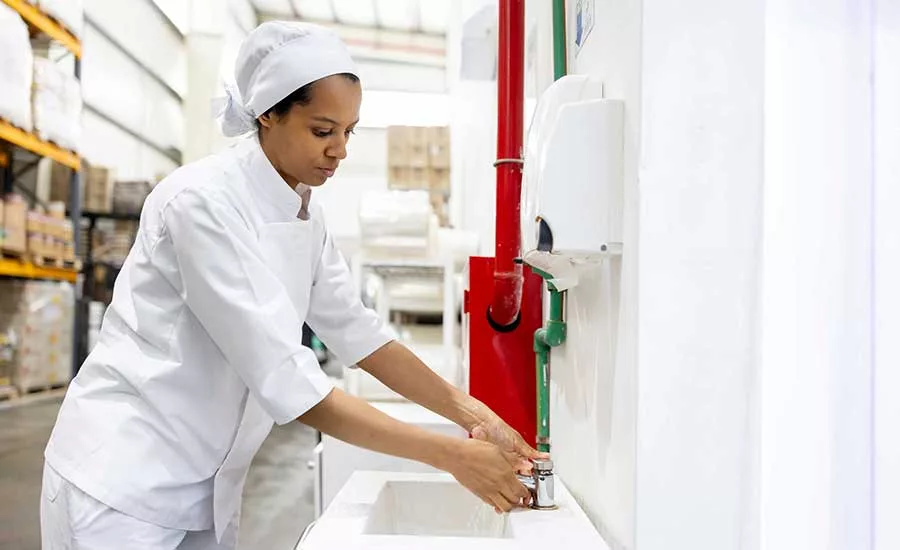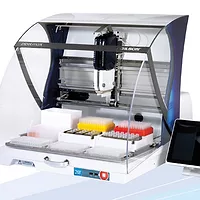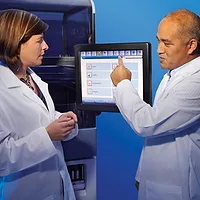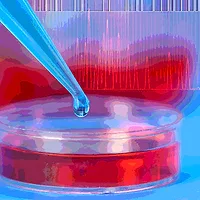What’s Next in Automation for Pathogen Testing?
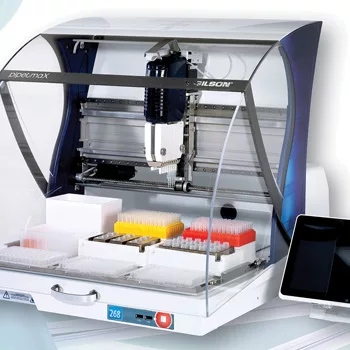
Labs conducting food safety testing are under more pressure than ever. The list of performance standards, accreditation requirements and client guidelines continues to grow. Coupled with these challenges are the expectations for cutting costs and increasing efficiencies, from what type of reagents to use to the throughput of the equipment. What may at first seem like a no-win situation can in fact be readily solved. The solution? Laboratory automation.
For many, the term “laboratory automation” conjures up very large and complicated pieces of instrumentation that require equally large budgets to purchase and maintain, as well as a cadre of skilled technicians to operate. Many of these traditional automation systems require a complete redesign of a lab and its workflow, turning automation into a complicated and expensive endeavor. According to a lab manager at a major commercial testing lab, “We are looking for automation to not only help increase our productivity, but also improve our bottom line. However, finding an economical system that has the simplicity needed for day-to-day operations has proved somewhat difficult.” Fortunately, new advancements in automation have allowed for the development of smaller, more flexible automation technologies that fit into existing laboratory configurations and workflows, and are available at a significantly lower price point than traditional systems. With these advancements, automation is within the reach of both low- and high-volume laboratories that wish to benefit from workflow automation and reduce handling steps.
Simplicity and Flexibility Are Essential
One example of modular automation is the Assurance GDS PickPen® PipetMAX® (PPMX): a new modular automation platform from BioControl for use with Assurance GDS®. The new PPMX provides labs with an easy, affordable and flexible means of automating sample preparation and processing. The PPMX dispenses all necessary reagents for running Assurance GDS assays and performs the proprietary immunomagnetic separation (IMS) using an automated PickPen device. “Automated systems placed in food testing labs must be able to withstand the rigors of round-the-clock testing without the need for lengthy and expensive maintenance procedures” according to one lab manager interested in automation. Modular automation focuses on completing one specific task rather than a series of more complex procedures, making operation easier and the instrument more robust in the long term. The cost for modular automation is also far lower, making this option appealing for growing labs seeking to become scalable with a fast return on investment.
With the PPMX, all necessary reagents for Assurance GDS assays can be dispensed up to 1 day in advance, which streamlines the reagent preparation process and removes it from the critical path of achieving fastest time-to-results, ensuring consistency. “The PPMX has been easy to use and accurate; being able to set up reagents in advance has really helped to simplify our operations,” says a lab manager who recently installed a PPMX. “The unit has proven reliable and robust, plus, its small size makes it the perfect fit.” The PPMX uses standard disposables and reusable reservoirs, which helps keep costs low.
IMS Takes PCR to the Next Level
The Assurance GDS method incorporates a proprietary IMS technology that utilizes antibody-coated magnetic particles to capture and concentrate target pathogens in the enriched sample. The Assurance GDS PickPen physically separates the IMS particles, with captured pathogen cells, from the enrichment and any potentially inhibitory background materials before transferring them to the PCR tubes for analysis. This effective process ensures that the reaction proceeds uninhibited without the need for dilution, which can compromise sensitivity. As part of the PPMX, the automated PickPen reduces hands-on labor by as much as 50 percent. “While the PPMX is completing the PickPen procedure, my staff is able to focus on other tasks—we are finally maximizing our productivity,” states another lab manager. In addition, the PPMX is programmed to follow an aseptic travel path during IMS, helping minimize the risk for cross-contamination during sample processing as compared with other automated systems currently available.
Good Things Come in Small Packages
Capable of processing over 400 samples in an 8-hour shift and providing results for all major foodborne pathogens in less than 24 hours, the PPMX makes Assurance GDS one of the fastest and most efficient PCR-based pathogen detection systems on the market today. It is also one of the most flexible as, in addition to its modular automation capabilities, assays can still be run manually if necessary. This flexibility makes Assurance GDS an ideal solution for labs of any size that are looking to accomplish more—with less.
To learn more about the latest in PCR automation, contact BioControl Systems: phone: 800.245.0113, email: info@
biocontrolsys.com, web: www.biocontrolsys.com.
Looking for quick answers on food safety topics?
Try Ask FSM, our new smart AI search tool.
Ask FSM →

